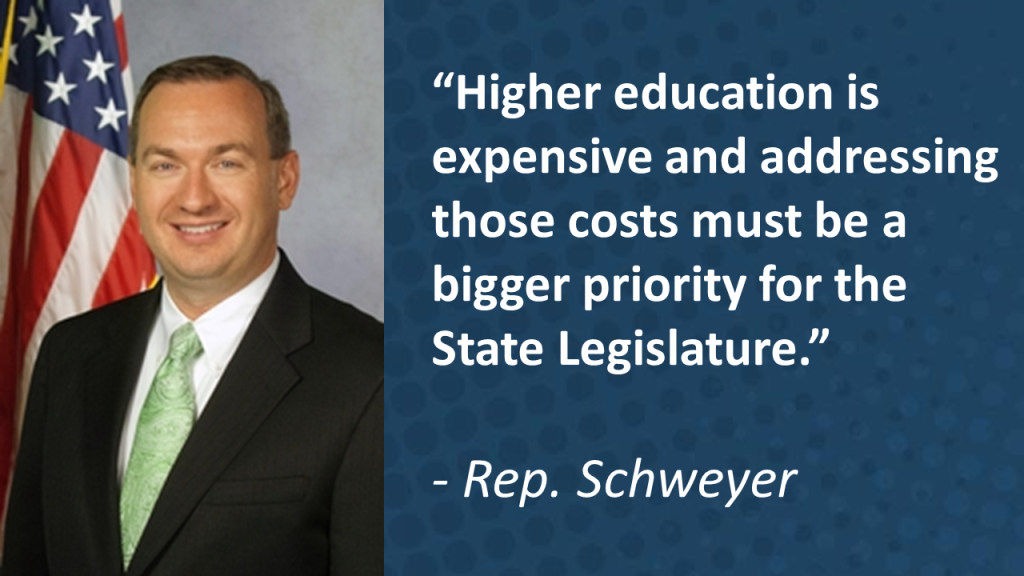
Rep. Peter G. Schweyer is a member of the Pennsylvania House of Representatives serving the people of the 134th Legislative District in Lehigh County. He was first elected to this office in 2014 after being twice elected to City Council in his hometown.
Born and raised in Allentown, Schweyer is a graduate of Allentown Central Catholic High School and the Pennsylvania State University, State College, where he earned a Bachelor of Science degree from Schreyer’s Honors College. He went on to study elementary education at St. Joseph’s University in Philadelphia at the post-graduate level. Prior to his election, Schweyer worked as director of community and government affairs for Sacred Heart Hospital in Center City Allentown, directing the hospital’s community health and community development initiatives.
Schweyer is the Majority Chairman of the House Education Committee. His legislative priorities include appropriately funding PA’s public schools, protecting and expanding access to health insurance, and supporting policies to spur the creation of more family-sustaining jobs in the Lehigh Valley.
What would you say are the biggest challenges facing higher education and postsecondary attainment in Pennsylvania?
First and foremost, folks should know that I grew up very much a member of the “working poor” socioeconomic class. My mother only attended one year of nursing school and my father didn’t finish high school. As a first-generation college student, I had little support in pursuing my post-secondary educational path nor was I financially prepared for it. Fortunately, I had the support of the public through Stafford loans (both subsidized and unsubsidized) and Pell Grants to help fund my college experience.
I know how hard it is for parents who are looking to make sure their kids do as well, if not better than they did. I watch as friends of mine look to change a career a little later in life or look to add an advanced degree. Higher education is expensive and addressing those costs must be a bigger priority for the State Legislature.
What role do you see community colleges playing in Pennsylvania?
We are fortunate in Pennsylvania to have tremendous public universities (I for one am a proud Penn State graduate) and amazing private colleges. But for so many people, that is just simply not a viable path for bettering themselves. “Real life” concerns (family, health, employment, etc.) can become nearly impossible barriers for people to overcome.
Enter our tremendous community colleges. They provide critical access to higher education for people from every walk of life in a flexible setting that avoids many of those other barriers. Access to a high quality, low cost and local education reduces the overall cost of a person’s higher education while working to achieve their personal and professional goals.
Lastly, and perhaps more broadly, community colleges do more to help folks achieve greater social mobility and economic freedom than any other higher education entity thus creating a more equitable society.
Pennsylvania is facing crisis-level shortages in critical occupations that our communities rely on in fields such as healthcare, education and public safety. How do community colleges help address these shortages?
Our community colleges are the most flexible higher education system not only for students, but for the communities they serve. A critical shortage of employees can hamper the economic vitality of any region, but because we have such a robust community college system, those workforce shortages can be addressed quickly. Community colleges do this not only by offering affordable educational options for their students, but by guiding students towards rewarding careers that are in high demand, thus reducing the impact of any student debt.
The views and opinions expressed by the legislator are solely that of the legislator and may not reflect the views, opinions, policies or position of the Pennsylvania Commission for Community Colleges or its member institutions.